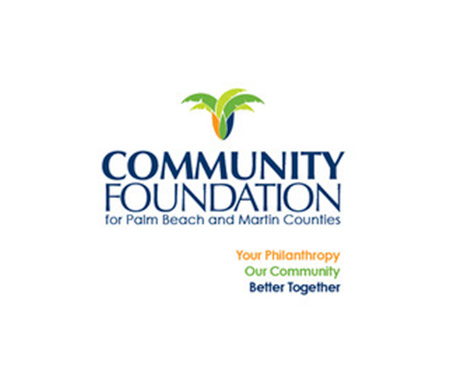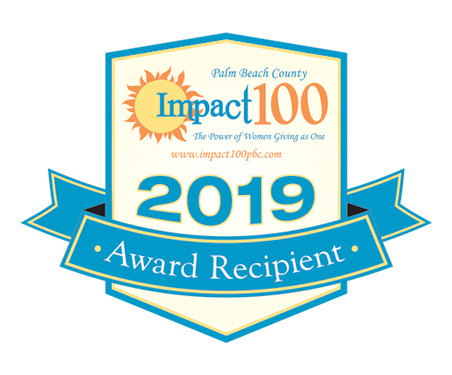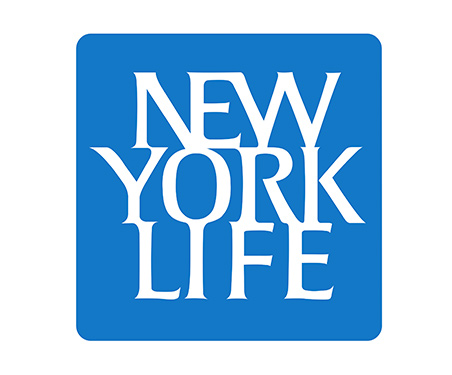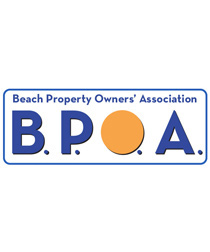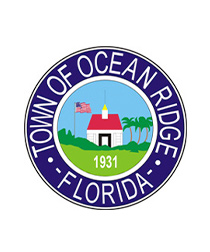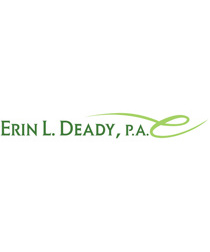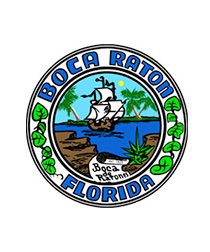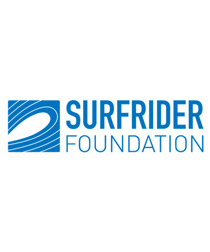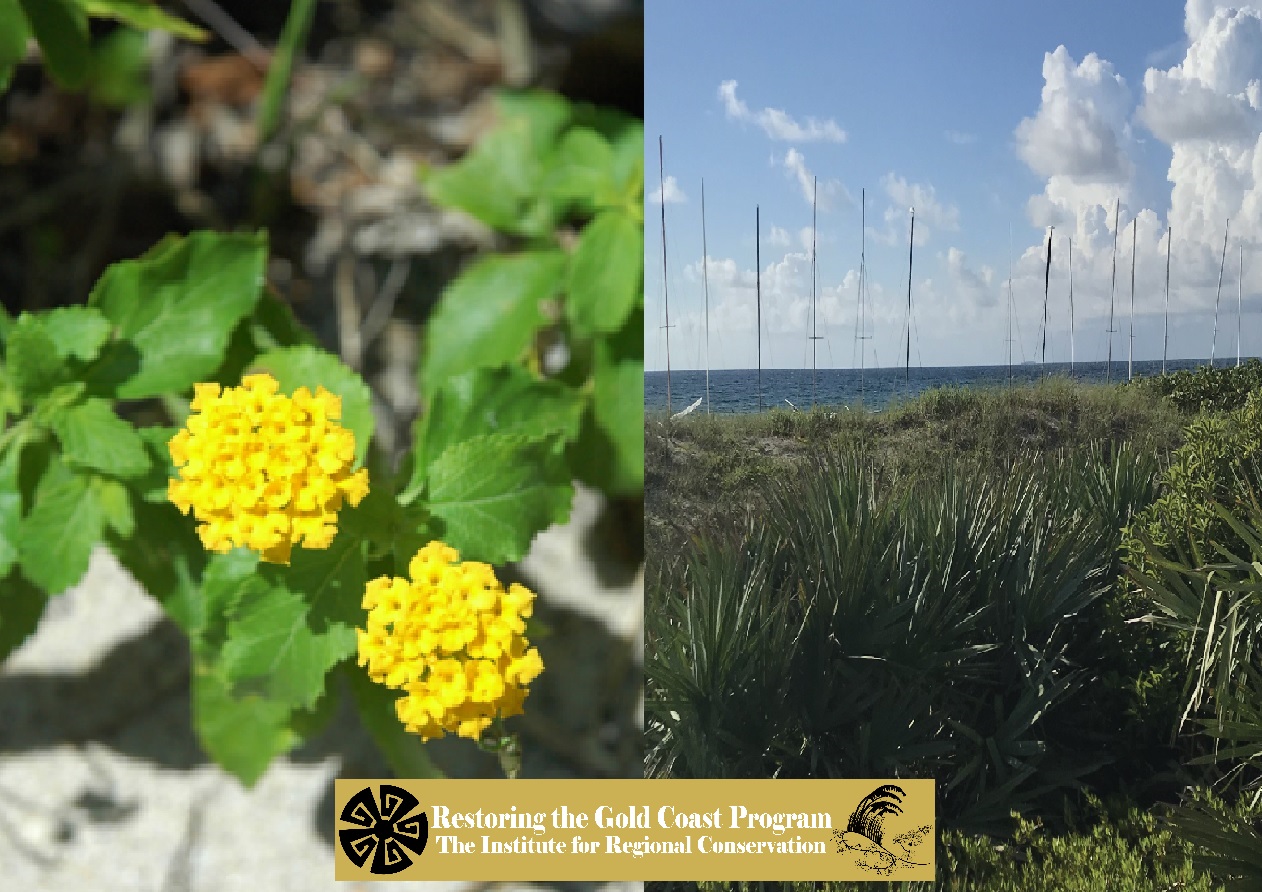
RECENT EVENTS
September 28, 2024 - IRC held an ecological restoration volunteer day at Red Reef Park. Together with volunteers and the City of Boca Raton Office of Sustainability, we worked together with volunteers to remove invasive Beach naupaka. The volunteers also installed a variety of native plants to the beach dune such as Sea lavender, Beach creeper, and Seaside joyweed all while learning the importance of coastal ecosystems.
June 7, 2024 – IRC held an ecological restoration volunteer day at Red Reef Park. Together with volunteers and the City of Boca Raton Office of Sustainability, we removed the invasive Beach naupaka that continues to take up space along the Southeastern Florida coast, and installed an additional 90 native plants. With your help we've been making great progress in our beach dune restoration it in that area!
May 22, 2024 – Fairchild Tropical Botanic Garden’s Beach Jacquemontia Virtual Summit was held. Over 22 participants joined for a field trip in Delray Beach. For the last 5 years restoration efforts have been underway for this federally endangered flowering beauty. This event brought together many stakeholders from local government, state government, and members of the community to learn about management and restoration practices. Special thanks to the City of Delray Beach and Delray Beach Fire Department for their support with this event.
April 1st, 12th, and 27th, 2024 – IRC held an ecological restoration volunteer day at Red Reef Park. Together with volunteers and the City of Boca Raton Office of Sustainability, altogether we planted over 175 plants! During the first two events, IRC was able to enhance over 23 different native coastal species such as the state threatened Inkberry, and state endangered Beach and Sea-lavender. Volunteers also removed over 100 pounds of Oyster Plant and Beach Naupaka. The last event was a celebration with the City of Boca Raton for the City Nature Challenge. For this event participants took part in a guided nature tour and BioBlitz. People were educated about the importance of coastal conservation and had an opportunity to observe the different habitats while using the iNaturalist app to take part in citizen science.
March 30, 2024 – IRC held an ecological restoration volunteer day at Atlantic Dunes Park. Thanks to funding and support from the City of Delray Beach and New York Life Foundation, IRC was able to install 200+ plants representing over 30 different native coastal species such as the state endangered Beach clustervine and rare species like Beach verbena and Partridge pea. These plants were installed in an area where volunteers had removed nonnative, invasive plants like Brazilian-pepper and Carrotwood, at a previous event. In addition, volunteers also removed invasive nonnative plants such as Snake plant, Oyster plant, and Brazilian-pepper.
March 9, 2024 – IRC held an ecological restoration volunteer day at Red Reef Park. Together with volunteers and the City of Boca Raton Office of Sustainability, we installed over 90 plants. Some of the plants installed included Inkberry, Beach clustervine, and Sea-lavender.
February 17, 2024 – IRC held an ecological restoration volunteer day at Atlantic Dunes Park. Volunteers learned about coastal conservation and helped us by removing several nonnative, invasive plants. We were able to remove roughly 2,000 cubic feet of the invasive Brazilian-pepper. Other nonnative plants that were removed were Snake plant, Carrotwood, and Oyster plant.
February 10, 2024 – IRC held an ecological restoration volunteer day at Red Reef Park. The volunteers installed 100 native plants, including 40 sea oats to stabilize the dune and 60 other plants to increase native plant diversity. Among some of the plants installed were state threatened Inkberry, and state endangered Beach clustervine and Sea-lavender. In addition, the nonnative, invasive plant, Beach naupaka was removed from the beach dunes.
September 30, 2023- IRC held an ecological restoration volunteer day at Red Reef Park. Together with volunteers and the City of Boca Raton Office of Sustainability, we installed over 350 native plants to a one of our Ecological Restoration Sites. Groups of volunteers were educated on the coastal hammock ecosystem and learned about the importance of increasing native biodiversity along our coastlines. Among some of the plants installed were over Saw Palmettos, endangered Beach clustervine (Jaquemontia reclinata) tropical sage, corky stem passionflower and more! Thank you to the City of Boca Raton for funding this work and for collaborating with us. This event was part of IRC's Restoring the Gold Coast program.
September 9, 2023 - IRC held an ecological restoration volunteer day at Atlantic Dunes Park. Together with volunteers and the City of Delray Beach, we removed several invasives including Brazilian pepper, Beach naupaka, and Snake plant from our ecological restoration site. Groups of volunteers were educated on coastal hammock ecosystems and the importance of invasive species control to safeguard native biodiversity to aid in natural ecosystem recovery. We thank the City of Delray Beach for providing funding for this work.
August 19, 2023 - IRC held an ecological restoration volunteer day at Red Reef Park. Together with volunteers and the City of Boca Raton Office of Sustainability, we installed over 60 native plants and removed invasive Scaevola taccada to a one of our Ecological Restoration Sites. Groups of volunteers were educated on the coastal hammock ecosystem and learned about the importance of increasing native biodiversity along our coastlines. Among some of the plants installed were over Saw Palmettos, endangered Beach clustervine (Jaquemontia reclinata) tropical sage, corky stem passionflower and more! Thank you to the City of Boca Raton for funding this work and for collaborating with us. This event was part of IRC's Restoring the Gold Coast program.
July 21, 2023 - IRC held an ecological restoration volunteer day at Red Reef Park. Together with volunteers and the City of Boca Raton Office of Sustainability, we worked to remove one of South Florida's most common and overlooked invasive species from Red Reef Park - the Oysterplant. Groups of volunteers were educated on the coastal hammock ecosystem they were working in while hand-pulling the plant from the ground. In just under 2 hours, we removed an incredible 1,154 pounds of nonnative invasive Oysterplant from throughout the park! Thank you to the City of Boca Raton for funding this work and for collaborating with us. This event was part of IRC's Restoring the Gold Coast program.
July 17, 2023 and July 24, 2023 - IRC continued summer Coastal Conservation Education programs at Loggerhead Marinelife Center (LMC). Excursions were led by Cara Abbott, IRC Assistant Director of Programs, and Kelly McLoughlin, IRC Coastal Biodiversity Restoration Technician, with groups of campers ranging in age from 6-17. During the outings, 60 students went on an educational tour of the beach dunes located just east of LMC's facility and 60 students went on an educational tour of the maritime hammock just north of the LMC facility. The tours included a scavenger hunt and discussion on the remarkable ways in which biodiversity contributes to dune resilience and provides food and shelter for wildlife. Each student was given a copy of our 'Explore Our Coast' coloring book. Thanks to the generous support of the Hornik Family Foundation grant, this summer's educational program has become achievable.
To see our RGC accomplishments to date, click here.
To order Biodiversity Starter Plant Kits or to make a donation to RGC, click here.
IRC Creates "Explore Our Coast" Coloring Book
May 18, 2023
IRC is excited to announce that we've created a brand new coloring book titled "Explore Our Coast"! This free, educational resource teaches kids about South Florida's coastal ecosystems and the amazing plants and animals that call these ecosystems home. To download your copy, simply fill out the form. Check your email and download your coloring book!
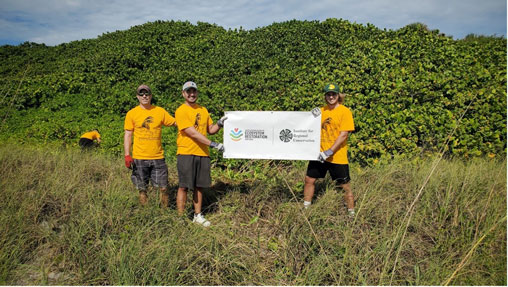
What is the Restoring the Gold Coast Program?
Restoring the Gold Coast (RGC) is a collaborative initiative launched in 2019 to restore the incredible beauty and diversity of plants and animals native to coastal ecosystems in southeastern Florida. A biologically diverse beach dune ecosystem is a healthy dune and our first line of defense against sea level rise, climate change, and catastrophic storms. Habitats along the intracoastal and adjacent waterways are also critical both for native species and as locations for adaptive, nature-based responses to sea level rise and climate change. Flooding and erosion are becoming serious threats further and further west to people and wildlife alike. Strengthening the coastline by restoring native plants and ecosystems is a feasible, proactive response. A diversity of native plants reduces coastal erosion, provides food and shelter for birds and other wildlife, and reduces effects of sea level rise and climate change. In its second phase (launching summer 2022), RGC expands from a concentration on the coastal dune system to include the whole barrier island west to the mainland along the intracoastal and adjacent waterways. This allows us to engage with more municipalities, benefit more Palm Beach County residents, and restore more populations of native plants that have been depleted along our coasts. RGC mobilizes partnerships within the community and has the added benefit of teaching children and adults that they can personally be part of the solution to climate change and restoring our environment.
How did this program start?
Restoring the Gold Coast is the culmination of years of research and planning, and builds upon small volunteer-driven restoration projects in Delray Beach and Miami Beach. In May 2019, IRC was awarded a $100,000 Impact 100 Palm Beach County grant to jumpstart this program in southern Palm Beach County. The grant from Impact 100 was used to conduct biodiversity assessments along the coast, hold restoration events, and host workshops from May 2019 to February 2021. In Fall 2019, IRC was awarded a $10,000 grant from New York Life for our Restoring the Gold Coast program.
In Summer 2022, we received a $40,000 Community Revitalization grant from the Community Foundation for Palm Beach and Martin Counties and a $10,000 Community Impact Grant from New York Life. These funds will allow us to launch Phase II of Restoring the Gold Coast. While the critical funding from CFPBMC and NYL has helped to get the project off the ground, it depends on a large group of partners and supporters. Please consider making a donation or becoming a formal sponsor to help restore native species along our coastline. Scroll to the bottom for a growing list of our sponsors and collaborators, for whom we are very grateful!

Why restore coastal ecosystems?
Restoring the Gold Coast enhances coastal communities in Palm Beach County by making them more vibrant, clean, green, and resilient. Diverse dunes are healthy, strong dunes, and our first line of defense against sea level rise and catastrophic storms. They contain hundreds of species, not just sea oats, sea-grapes, and sea turtles, as important as those species are. They comprise an economic engine, protecting the beaches essential to tourism and property values as they help capture sand and prevent erosion. When the right plants are added to the right places along the intracoastal, they buffer against erosion from wind, wake, and tides, and help filter out harmful synthetic fertilizers and pesticides, which otherwise flow unimpeded into the Lake Worth Lagoon and greater ecosystem and then ultimately flow into the sea. These restoration efforts also provide critical habitat for butterflies, migratory birds, and other native wildlife suffering from the impacts of lost habitat and coastal squeeze as sea level rise and flooding increases impacting habitat. To quote from our publication with the Ocean Ridge Garden Club: “From windy dunes to salty lagoons – In this landscape, the best and most beautiful defenses are native plants, which has been selected for millennia by nature to endure and thrive.”
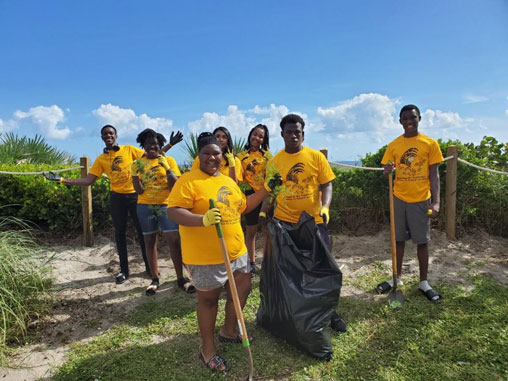
Who should participate?
Our restoration activities (native planting and invasive plant removal) give community members of all ages and backgrounds the opportunity to restore native biodiversity while removing plastic, micro-plastic and other pollution before it enters our ocean. Participants will learn how to become part of the solution in responding to climate change by planting a diversity of native plants that are as economically beneficial as they are environmentally important and aesthetically beautiful. In Phase I of RGC, we surpassed our goal by engaging over 1,200 people. If you know of a garden club, school group, tourist group, volunteer group etc. in Palm Beach County that would be interested in helping us restore coastal biodiversity through a field trip or event or learning more about coastal conservation through a presentation or workshop, please reach out to our please reach out to our Conservation Program Manager, Liz Dutra, at ldutra@regionalconservation.org.
Private Landowner Resources
Are you a private landowner on the barrier island in Palm Beach County? Would you like to increase native diversity and support local pollinators on your property? If so, check out our Biodiversity Starter Kits available for purchase through our Restoring the Gold Coast program.
If you have coastal dunes on your property, we encourage you to become part of the “Adopt a Dune” program to formalize your commitment to restoring your dunes. Simply click on this link https://adoptadune.com/institute-for-regional-conservation-individual/, fill out the form and select at which level you would like to join. Then we will be in touch to create the sign you can proudly display and schedule site visits and plant drop-offs depending on the level you select.
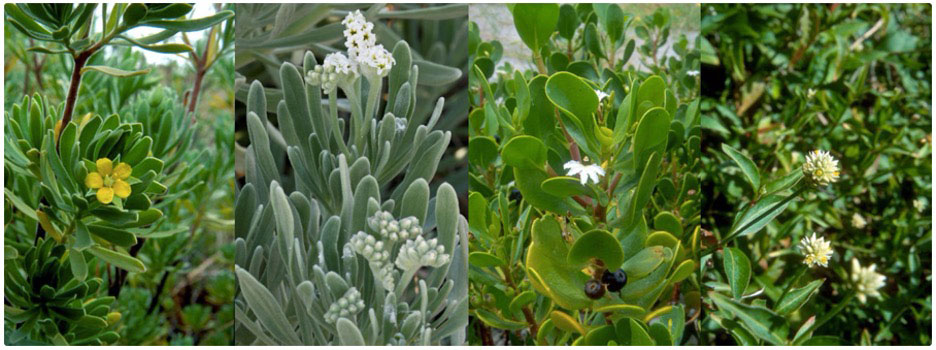
Major Sponsors
Sponsors
Collaborators
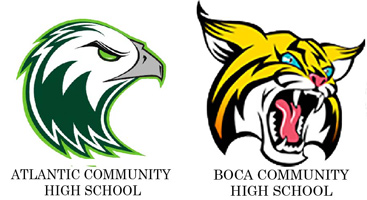
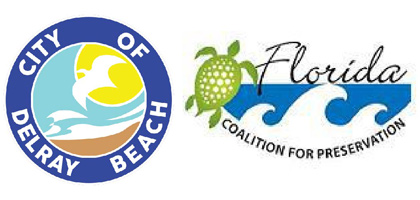
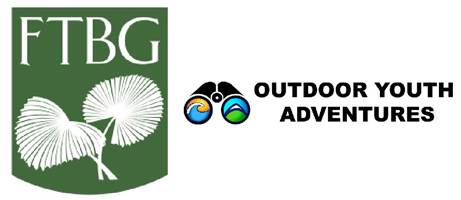
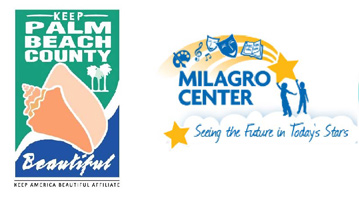
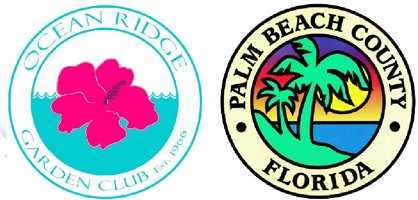
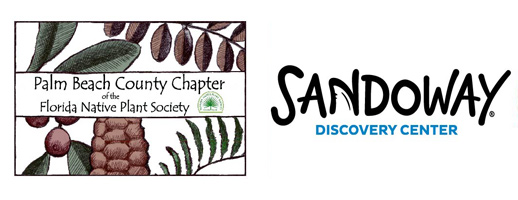
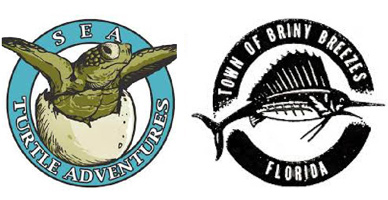
Preparing the Ground at Atlantic Dunes Park, Delray Beach
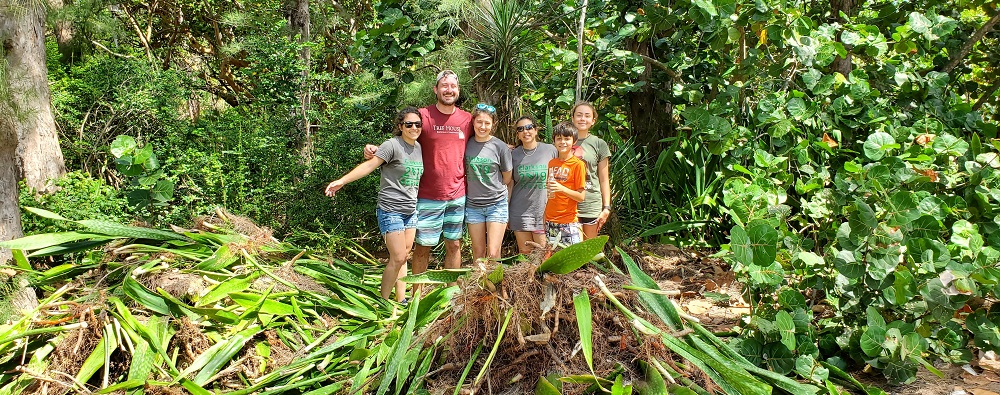
Planting Sea-oats at Atlantic Dunes Park, Delray Beach (exotic Agave still has to go!)
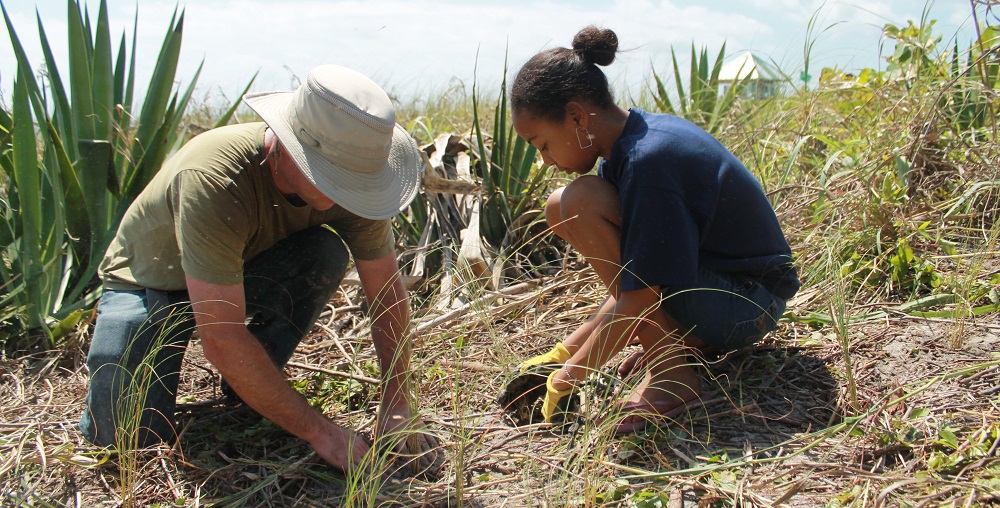
How can I help?
We want YOU to be a part of Restoring the Gold Coast! If you are interested in volunteering at one of our public restoration events or interested in attending one of our workshops or training events, sign up for our monthly newsletters to get up to date information. If you know of a school group, garden club, or volunteer group that you think would be a good fit with this program, let us know! If you know of a business that would like to support our program financially by becoming a sponsor, contact us for our sponsorship information. If you are a coastal landowner, we are particularly interested in hearing from you!
Email Liz Dutra, our Conservation Program Manager, at ldutra@regionalconservation.org or call at 305-247-6547 for more information or to get involved!
Want to keep up to date on our activities?
Check out our Events page at Events
Like us on Facebook and Instagram!
Focal Gold Coast Species
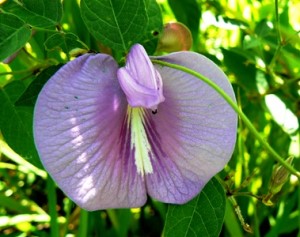
Centrosema virginianum
- Widespread in south Florida in both inland and coastal locations, but very rare in southern Palm Beach County.
- Previously documented at Atlantic Dunes Park (1991) but apparently extirpated there.
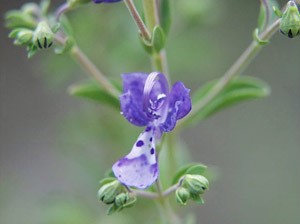
Trichostema dichotomum
- Widespread in South Florida in both inland and coastal locations, but very rare along the coast in southern Palm Beach County.
- Previously documented at Atlantic Dunes Park (1991, 1993) but apparently extirpated there.
Click here for more Gold Coast species!



